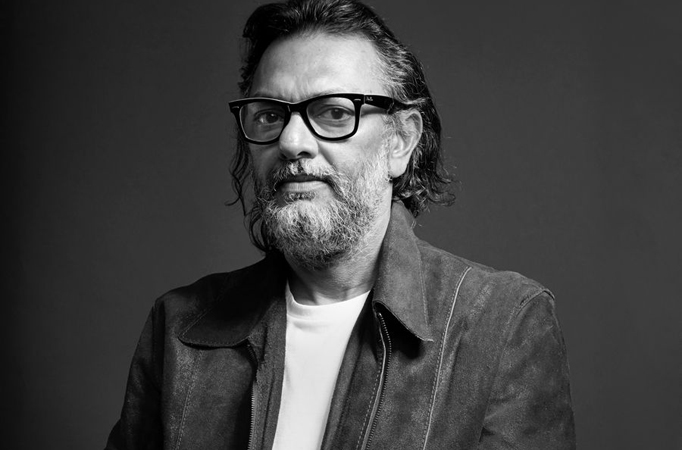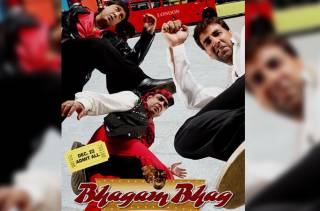Submitted by
TellychakkarTeam
on
Thu, 08/10/2017 - 16:20

Be it Akshay Kumar-starrer "Toilet: Ek Prem Katha" or his own directorial "Mere Pyaare Prime Minister", films delving into the need to eradicate open defecation are "timely", says filmmaker Rakeysh Omprakash Mehra, who feels the nation needs to build more toilets than mosques and temples.
"I really don't know what these films will do, but they are very timely," Mehra told IANS over phone from Mumbai.
He has a point.
According to Unicef India, the country has the largest number of people -- over 564 million -- still defecating in the open. Also, about 65 per cent of people in rural areas in India do not have access to toilets.
While "Toilet: Ek Prem Katha", releasing on Friday, is trying to spread the message of Swachh Bharat by delving on the importance of making toilets in an entertaining way, "Mere Pyaare Prime Minister" -- with its intriguing title -- will tell a humble story of a slum boy who wants to build a toilet for his mother.
Mehra said these stories go beyond the subject of toilets.
"The stories are not about toilets. Stories are about human beings... So, I hope that as a human story, 'Mere Pyaare...' can reach out and touch hearts, and move you in a way which is very positive and thereby, the story becomes a part of a collective consciousness, rather than what just might concern a selective consciousness.
"I hope it becomes not just a talking point, but an awareness. Once there's an awareness, something can be done about it."
He said somewhere, "the voice of the film even tells you that rather than making mosques and temples, it's more important to make toilets".
Prodded on why he said that, the National Award-winning filmmaker clarified: "I am not defying a belief... I don't believe in mosques and temples. I do believe they are essential to a society and people find their peace of mind and spiritual connect... But I also feel that the focus of the nation cannot be kept on that.
"It needs to shift now towards giving social security, social benefits to the people of this country... Just making their lives happier."
He added: "Maybe what I am trying to say is that you can go without going to the mosque or temple for a day or even go without a meal, but you can't just go without going to the toilet everyday. I am saying it in a practical way, and not saying it in a frivolous way or like a joke. It's a simple biological fact of life."
The "Rang De Basanti" and "Bhaag Milkha Bhaag" director is doing his bit by being associated with the Yuva Unstoppable NGO for the cause of building toilets in municipal schools in various parts of India.
Having grown up in Delhi, Mehra has been staying in Mumbai since almost three decades now. It is the "contrast between the haves and have-nots" in the country's financial capital that irked him enough to explore a movie around it.
The result is "Mere Pyaare Prime Minister". Largely shot with four children, real extras from slums and National Award-winning actress Anjali Patil, Mehra took his cameras to Mumbai suburbs Amrut Nagar and Passpoli to capture the true-to-life scenes and locations where people defecate in the open.
"When you take a flight to Mumbai, your plane feels like it will land on slums and suddenly there's a runway.
"When I shifted to Mumbai around 30 years ago, there was one slum called Dharavi... the biggest in Asia and all of that. And now when I look around, there are a hundred Dharavis around us. There are more slums than buildings. So, I always wondered what's life like there."
In the quest to find that, he realised that "against all odds, there's an immense celebration there".
"Despite all the problems, people don't give up hope. That hope inspired me to get into this film... I wanted to tell a story of inspiration."
"I really don't know what these films will do, but they are very timely," Mehra told IANS over phone from Mumbai.
He has a point.
According to Unicef India, the country has the largest number of people -- over 564 million -- still defecating in the open. Also, about 65 per cent of people in rural areas in India do not have access to toilets.
While "Toilet: Ek Prem Katha", releasing on Friday, is trying to spread the message of Swachh Bharat by delving on the importance of making toilets in an entertaining way, "Mere Pyaare Prime Minister" -- with its intriguing title -- will tell a humble story of a slum boy who wants to build a toilet for his mother.
Mehra said these stories go beyond the subject of toilets.
"The stories are not about toilets. Stories are about human beings... So, I hope that as a human story, 'Mere Pyaare...' can reach out and touch hearts, and move you in a way which is very positive and thereby, the story becomes a part of a collective consciousness, rather than what just might concern a selective consciousness.
"I hope it becomes not just a talking point, but an awareness. Once there's an awareness, something can be done about it."
He said somewhere, "the voice of the film even tells you that rather than making mosques and temples, it's more important to make toilets".
Prodded on why he said that, the National Award-winning filmmaker clarified: "I am not defying a belief... I don't believe in mosques and temples. I do believe they are essential to a society and people find their peace of mind and spiritual connect... But I also feel that the focus of the nation cannot be kept on that.
"It needs to shift now towards giving social security, social benefits to the people of this country... Just making their lives happier."
He added: "Maybe what I am trying to say is that you can go without going to the mosque or temple for a day or even go without a meal, but you can't just go without going to the toilet everyday. I am saying it in a practical way, and not saying it in a frivolous way or like a joke. It's a simple biological fact of life."
The "Rang De Basanti" and "Bhaag Milkha Bhaag" director is doing his bit by being associated with the Yuva Unstoppable NGO for the cause of building toilets in municipal schools in various parts of India.
Having grown up in Delhi, Mehra has been staying in Mumbai since almost three decades now. It is the "contrast between the haves and have-nots" in the country's financial capital that irked him enough to explore a movie around it.
The result is "Mere Pyaare Prime Minister". Largely shot with four children, real extras from slums and National Award-winning actress Anjali Patil, Mehra took his cameras to Mumbai suburbs Amrut Nagar and Passpoli to capture the true-to-life scenes and locations where people defecate in the open.
"When you take a flight to Mumbai, your plane feels like it will land on slums and suddenly there's a runway.
"When I shifted to Mumbai around 30 years ago, there was one slum called Dharavi... the biggest in Asia and all of that. And now when I look around, there are a hundred Dharavis around us. There are more slums than buildings. So, I always wondered what's life like there."
In the quest to find that, he realised that "against all odds, there's an immense celebration there".
"Despite all the problems, people don't give up hope. That hope inspired me to get into this film... I wanted to tell a story of inspiration."
(Source: IANS)
Like

0
Love

0
Haha

0
Yay

0
Wow

0
Sad

0
Angry

0









Add new comment